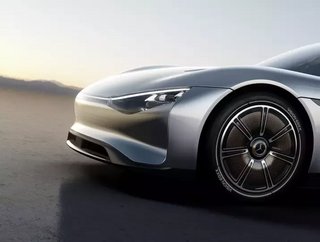Mercedes-Benz eases electric range concerns with Vision EQXX

Mercedes-Benz believes it has cracked the conundrum of electric vehicle range constraints, claiming its VISION EQXX is capable of driving 1,000 kilometres (621 miles) on a single charge.
The battery pack in its new prototype holds almost 100kWh of energy (10kWh per 100kms), yet has 50% less volume and is 30% lighter than its EQS model.
Markus Schäfer, Member of the Board of Management of Daimler AG and Mercedes-Benz AG, Chief Technology Officer responsible for Development and Procurement, said the technology programme behind the VISION EQXX will define and enable future Mercedes-Benz models and features.
The luxury carmaker says it has had the best minds from its R&D centres working together with engineers from its Formula 1 and Formula E programmes to produce its software-driven electric car. Engineers used advanced digital tools to lower weight and reduce waste by removing excess material assisted by 3D printing; design an electric-only chassis with lightweight F1 subframe; and construct the model using recycled materials.
“They are proving that innovations from motorsport – where powertrains are already highly electrified – have immediate relevance for road car development. We are challenging current development processes with innovative spirit and outside-the-box thinking," he said.
Its UI/UX features a radical new one-piece display that comes to life with responsive real-time graphics and spans the entire width of the vehicle. Other elements of the UI/UX help the car and driver work together as one, and even use technology that mimics the workings of the human brain.
Prices haven't been released for the VISION, but it will likely be beyond the realm of most motorists' budgets. Mercedes' new EQS OTR, which has a range of 453 miles, costs a cool £99,995.
Automotive brands are out in force this week at CES 2022, which has attracted over 2,200 exhibitors.
Chrysler is promoting its Airflow Concept equipped with STLA AutoDrive, which delivers Level 3 autonomous driving capabilities and will be upgradable via OTA updates.
The concept features all-wheel-drive capability and is powered by two 150 kW electric drive motors (EDMs), one in the front and one in the rear. The concept is designed to accommodate larger capacity EDMs, offering the potential for future high-performance applications.
Drive motors are located toward the front and rear of the vehicle, maximizing interior space and enabling the large wheel size and wide stance of the Airflow Concept. The battery is designed to achieve between a 350- and 400-mile range on a single charge. Chrysler also aims to roll out its first battery-electric vehicle (BEV) by 2025.
Our Next Energy, a Michigan battery technology company, might try to steal Mercedes' range thunder.
It is demonstrating a proof-of-concept battery that can power an electric vehicle 752 miles without recharging. The vehicle completed a road test across Michigan in late December with an average speed of 55 mph.
The results were validated by a third party using a vehicle dynamometer where the test vehicle, a Tesla Model S retrofitted with an experimental battery, achieved 882 miles at 55mph.






